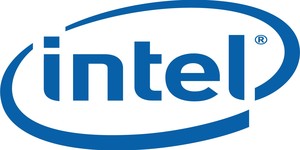
Google has officially launched its Google Glass wearable computing system in the UK, and in doing so has doubled the memory to 2GB - but the version available now retains its eye-watering early-adopter price-tag.
Formally unveiled in 2013 following considerable teasing, Google Glass offers a fully-fledged Android microcomputer and camera system built into a glasses frame. Connected to a compatible Android handset, the system offers a head-up display above the eyeline of the right eye through which messages can be viewed while also running its own custom applications dubbed Glassware.
When Google first announced Project Glass, it did so with a promise: the retail version of the hardware would cost no more than a mid-range Android smartphone, at around £300 or less. Sadly, the company has yet to make good on its promise - and the UK launch is, make no mistake, not the retail model. Rather, it's an extension of the early adopter scheme, known as the Explorer Programme, first launched in the US and comes with a considerably higher price-tag than first promised: £1,000 with free shade lenses or frames from the Google Play store.
For that, buyers get double the memory of the original US model at 2GB - and that's a move that has early adopters who have paid $1,500 for their 1GB edition upset. Many have responded to Google's announcement by demanding free upgrades to the 2GB model, while others claim the original device's low memory leads to unusable slowness when using the latest software with more than one Glassware app running. Others have taken offence at Google's claims that software improvements available to all have boosted the average battery life of the device - which needs recharging daily - by 20 per cent, claiming to have experienced an equal or greater decrease in runtime.
More details, and the order link if you've got a spare £1,000 burning a hole in your pocket, are available on the Google Play store.
Formally unveiled in 2013 following considerable teasing, Google Glass offers a fully-fledged Android microcomputer and camera system built into a glasses frame. Connected to a compatible Android handset, the system offers a head-up display above the eyeline of the right eye through which messages can be viewed while also running its own custom applications dubbed Glassware.
When Google first announced Project Glass, it did so with a promise: the retail version of the hardware would cost no more than a mid-range Android smartphone, at around £300 or less. Sadly, the company has yet to make good on its promise - and the UK launch is, make no mistake, not the retail model. Rather, it's an extension of the early adopter scheme, known as the Explorer Programme, first launched in the US and comes with a considerably higher price-tag than first promised: £1,000 with free shade lenses or frames from the Google Play store.
For that, buyers get double the memory of the original US model at 2GB - and that's a move that has early adopters who have paid $1,500 for their 1GB edition upset. Many have responded to Google's announcement by demanding free upgrades to the 2GB model, while others claim the original device's low memory leads to unusable slowness when using the latest software with more than one Glassware app running. Others have taken offence at Google's claims that software improvements available to all have boosted the average battery life of the device - which needs recharging daily - by 20 per cent, claiming to have experienced an equal or greater decrease in runtime.
More details, and the order link if you've got a spare £1,000 burning a hole in your pocket, are available on the Google Play store.

MSI MPG Velox 100R Chassis Review
October 14 2021 | 15:04








Want to comment? Please log in.